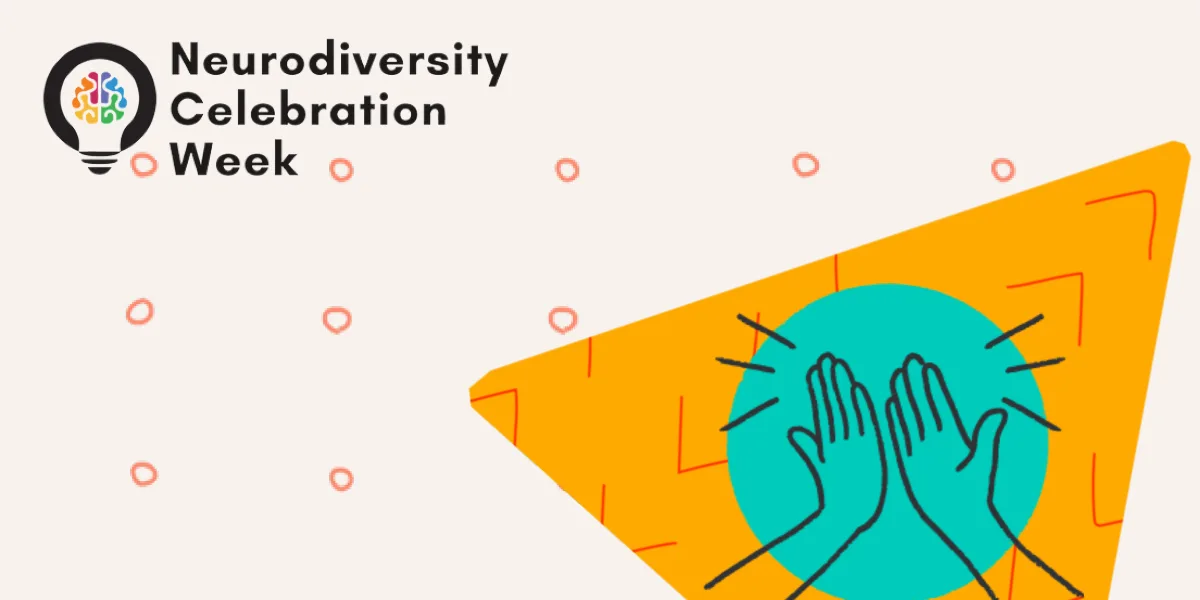

This is a guest blog written by Charles Chandler, a Maths and Sciences tutor on MyTutor, and one of your 2023 Tutor Reps.
The 13th-19th of March is Neurodiversity Celebration Week this year. This is a time to celebrate and raise awareness about the diversity of human brains, and the unique strengths and challenges that come with neurodivergent conditions such as autism, ADHD, and dyslexia (just to name a few). As a tutor, it’s really important that you understand how neurodiversity affects your students and to have the tools and strategies to support them in their learning journey!
Understanding neurodiversity🧠
Neurodiversity refers to the natural variations in the way people think and process information. It’s important to understand that neurodiversity is not a disorder or a problem, but rather a natural aspect of human diversity. This understanding can help to create a more inclusive and judgement-free learning environment for all students.
Supporting dyslexic students✍️
Dyslexia is a specific learning difficulty that affects the way a person processes written information. As a tutor, you can support dyslexic students by using a variety of teaching strategies, such as breaking down complex information into manageable chunks. One way to do this is to use bullet points or numbered lists to break down a larger topic or concept into smaller, more digestible pieces of information. In addition, visual aids can be extremely helpful for dyslexic students, as they can make it easier to understand complex concepts and retain information.
For example, a tutor could use diagrams, flowcharts, or mind maps to visually represent key ideas or concepts. In the online lesson space, coloured backgrounds can be used to help dyslexic students to focus on text and make it easier to read. There are many different types of technology that can be used to support dyslexic students, such as using a dyslexia-friendly font in lessons, such as OpenDyslexic (which is designed to make reading easier for dyslexic students). Also, you may find that providing captions or transcripts for any video or audio content can really help students who may struggle with auditory processing!
Supporting autistic students💜
Autism is a neurodevelopmental condition that affects the way a person processes information and interacts with the world around them. Autistic students can struggle with social communication and interaction, as well as with understanding and processing information. To support autistic students, it’s important to create a predictable and structured learning environment, using clear and concise language, and incorporating visual aids and technology to support their learning.
One way that I like to do this is to provide a visual schedule or timetable for the lessons’ activities that I will have on the whiteboard ready for when they join, so the student knows what to expect and can prepare mentally for any transitions or changes! In terms of language, I find that it is really important to avoid using figurative language, sarcasm, or other types of abstract language because autistic students have a super hard time understanding this. For example instead of saying ‘Let’s hit the books’ or ‘time to get our heads down’, you could say ‘It’s time to start studying now’.
How you can help celebrate neurodiversity👐
As a tutor, you can encourage your students to celebrate their neurodiversity by sharing their experiences and discussing the challenges and strengths that come with their particular condition. This can be a great way to make sure students feel comfortable and included. Remember to never be afraid to ask students if there’s anything that you can do to make lessons easier and more engaging for them; giving them control over their own learning will really help to boost their confidence! Another way to celebrate neurodiversity week is to include a short starter activity that promotes some of the great contributions neurodiverse people have made to society to encourage students to embrace their own unique strengths and abilities (in group lessons this can also be a good way to spark a discussion between students where they can share their experiences like mentioned above!).
Tying it all together, neurodiversity week is an excellent opportunity to use the strategies and advice above to ensure that all students feel comfortable, included and confident in themselves, helping them to best thrive and succeed in their learning journeys!
For more information on neurodiversity, here are some similar blogs written by other tutors👇:
Tips on how to make your lessons ADHD an ADD friendly
Tips from an autistic tutor (and how to avoid stereotyping)
Dyslexia tips from a dyslexic tutor
As always, if you have any questions or feedback, we’d love to hear from you. You can reach us on [email protected] or 0203 773 6024.




